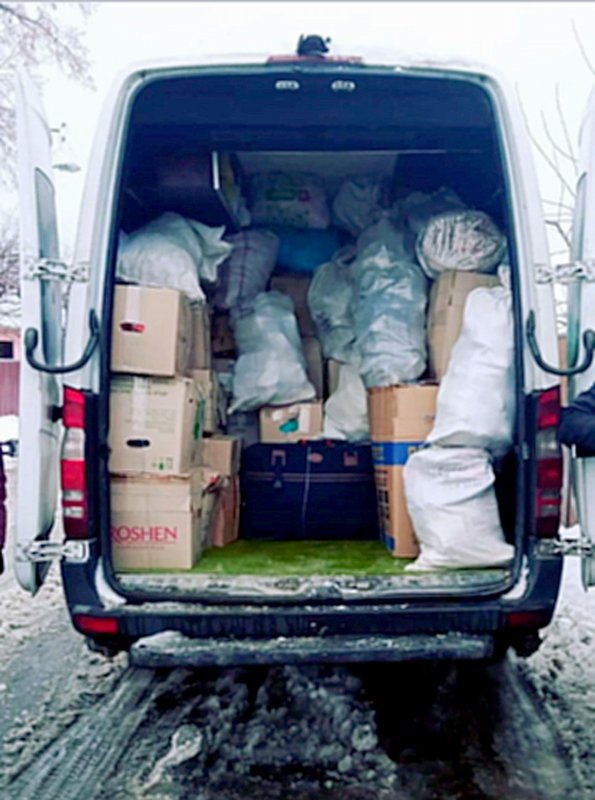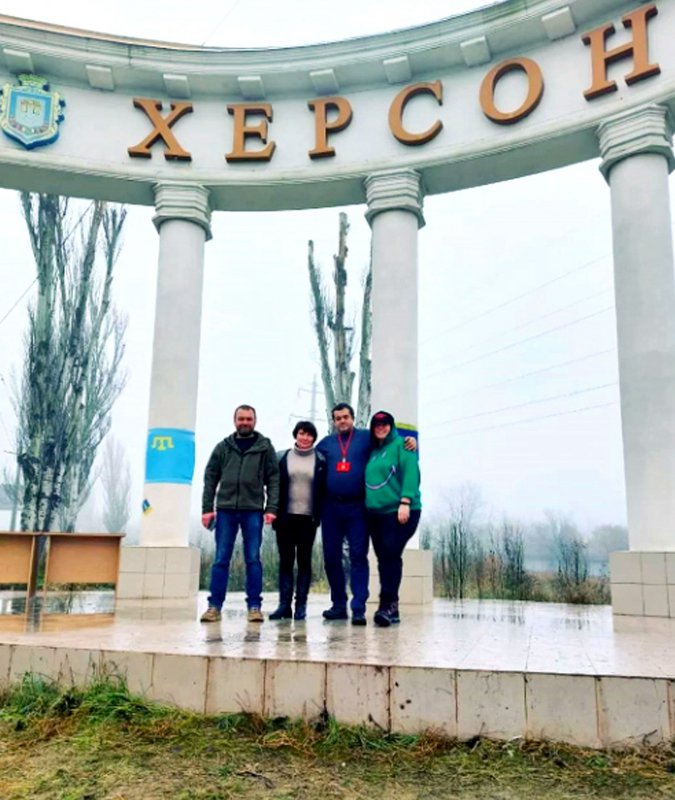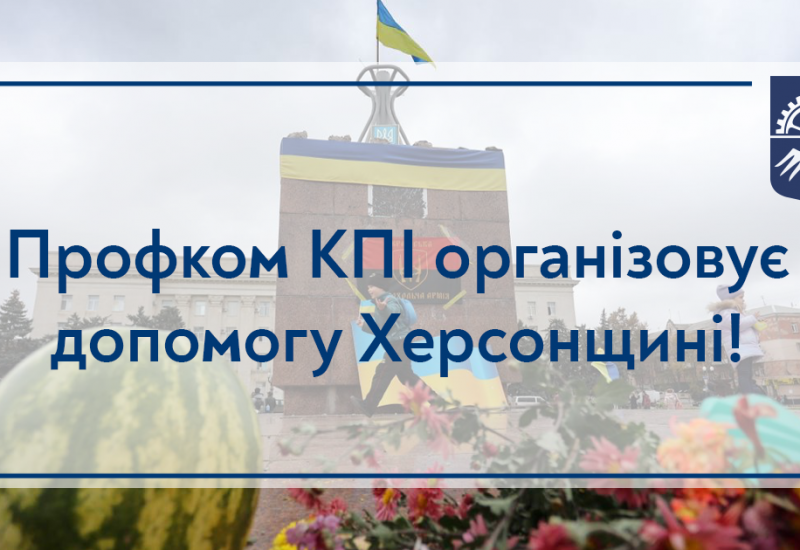The Route to Liberated Kherson Has Been Mapped
The Humanitarian Centre of the Students Trade Union Committee acts. And this is no idle boast. Today's story is a confirmation of this. After all, it is about two days from the life of Inna Bednarska, a volunteer at the Humanitarian Centre, a lecturer at the Department of Thermal and Alternative Energy of the Educational and Scientific Institute of Nuclear and Thermal Energy, who made a trip to the territory liberated from rashist invaders together with her uncle Volodymyr Khropun, friend Ivan Hryntsevych, and a very experienced volunteer Alla Yakovenko. And it all started with an announcement posted on the university's Internet resources. It was compact: "There is an opportunity to send humanitarian aid to Kherson next Friday. The main request is food and warm clothes, even bottled water and materials for candles are appropriate." But the first question of the "KP" correspondent to Inna Bednarska was about how she manages to combine volunteering and teaching activities.
- Do you manage to do everything planned by the Humanitarian Centre in time? - I ask the interlocutor.
- In my opinion, the life of a university lecturer, laboratory assistant or student is not reduced to lectures and seminars during enemy aggression, - Inna Bednarska shares her thoughts. – I am the wife of a soldier of the National Guard of Ukraine, and I manage to fulfill both my own teaching duties, and work in our Humanitarian Centre, and help in the organization of training courses for military psychologists. And therefore, at any opportunity, I take on urgent tasks. Today we are preparing a new transport to send the necessary products to the Kherson region, we are buying food and necessary things. And we are also establishing business relations with railway operators, so that we can quickly deliver everything necessary to the liberated Kherson and settlements of the region by rail in the near future.
- Mrs. Inna, the first humanitarian supplies with valuable and desired things and food have already been delivered to Kherson, liberated from the russian occupiers. What do you remember about this business trip to the front-line territory?
- Let me clarify, the supplies left Kyiv on two trucks at different times. Our car, thanks to the skill of the driver, arrived at the territory freed from the rashists much faster than the second one. We passed Voznesensk in about 10 hours. We drove to Kherson on a highway destroyed by bombing. More and more attention was paid to war-torn residential buildings and industrial infrastructure.
- Did you get there without any extraordinary incidents?
- We didn't get lost, although we had to go around an unfamiliar city in search of a location for local volunteers. Later, colleagues from Kyiv came to us. We unloaded trucks at the Kherson House of Youth and Students late in the evening. They were waiting for us here, and welcomed us. The volunteers transferred the supplies, had hot tea and slept in a dark room (electricity was absent during the long occupation period, during our stay there was no water either). So our supplies were appropriate. And in the morning we were on the way back to the capital.
- Was your rest interrupted by explosions?
- Unfortunately, it was. The fact is that the enemy is stationed in Oleshky. This settlement is located on the left bank of the Dnipro. From there, enemy artillery cannons shelled the center of Kherson from time to time, and rocket shells flew over our home station all the time. To sum up, it was impossible to sleep long. But, as they say, fate helped us not to fall under a mine or another artillery "surprise" from the opposite bank.

- How was your morning?
- Tragic news arrived at dawn. One of the local residents, still a young man, having gone to the Dnipro for water, was mortally wounded by a sniper rifle from the opposite bank. Death walks nearby. But this fact will in no way change our desire to volunteer in de-occupied territories.
- How is life in Kherson improving?
- We learned that one of the shopping centers of the retail network opened. Utility service providers, residents' heating points are working. Kherson is gradually getting on with its life. Residents rejoice at the liberation of the city from the rashist invaders.
- I know that in addition to this dangerous voyage, you had also done volunteer work before. What exactly did you succeed in?
- Yes, I had. We cooked more than two thousand meals for the soldiers of the Armed Forces, Territorial Defense and for hospitals every day from the first days of the large-scale invasion of the enemy. We were led by Alla Yakovenko, whom you already know, and her friend Tetiana Polivoda. And at the Humanitarian Centre of the Igor Sikorsky Kyiv Polytechnic Institute, I had to take care of sending to the frontline potbelly stoves, a drone, chargers, a thermal imager, disposable showers, boot dryers in field, and almost four thousand home-made trench candles. Ultimately, everything depends on the funds donated by students, teachers, and alumni of our alma mater. We are very grateful to them for this!

- Please share your upcoming plans.
- We help in organizing courses for military psychologists led by Andrii Omelchenko. They will contribute to the return to normal life of the military and civilians who suffered from the rashist invasion. And in the near future we are going on the next voyage to Kherson. They are already waiting for us.
- I wish you and your fellow volunteers from the Humanitarian Centre all the best!

